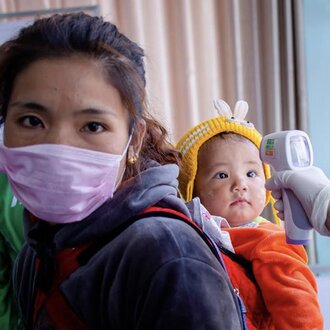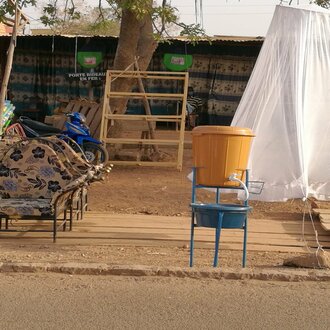Peru: Survival aid for migrants from Venezuela
By Kaspar Schmidt, Helvetas Program Advisor Peru
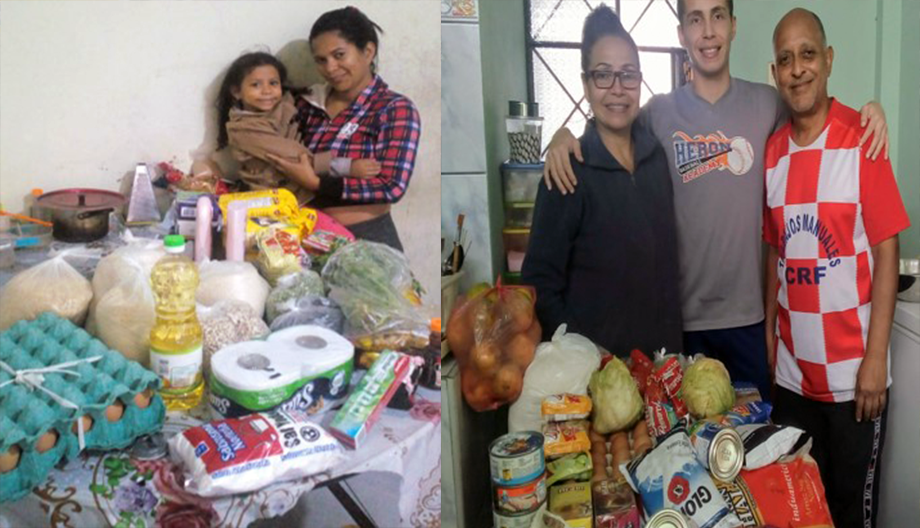
South America has become a center of the pandemic. The number of confirmed new infections in many countries in the region has increased again in recent weeks. With almost 200,000 cases, Peru now ranks eighth internationally, partly as a result of many tests. In recent days, the authorities have reported slightly lower figures, with around 4,500 new infections per day. Is the long-awaited turnaround now coming? The Peruvian government has extended the emergency and quarantine until the end of June. At the same time, selected sectors are allowed to resume operations.
Local markets and banks as a danger
Why is the number of cases in the region continuing to rise? As in other emerging countries, the international mobility of the upper and middle classes in Peru has facilitated the initial spread of the virus. Peru has very quickly adopted far-reaching measures. However, the marked social inequality and weak public institutions mean that some of these measures have been ineffective.
In Peru, around 60% of the economically active people work in the informal sector. Many people are dependent on daily income and cannot work from home. Poor families often live in confined spaces. They can barely observe social distancing rules and cannot isolate themselves. About three quarters of all poor households do not have a refrigerator and have to shop frequently. As a result, local markets, as well as banks that pay out state support payments, have developed into sources of infection.
Strangers on the street asking for help
Peru has put together a large economic aid package by regional standards. However, despite the raw materials boom of the past decade, public services are chronically underfinanced. The consequences - such as inadequately equipped hospitals outside Lima and precarious sanitary installations in public schools - make prevention measures and medical treatment more difficult.
In recent weeks, strangers on the street have repeatedly asked me to help their families. Helvetas is supporting needy families, for example through an emergency aid project for migrants from Venezuela in the port city of Callao near Lima, where the number of cases is still rising. Currently, about one million Venezuelans live in Peru, mostly under difficult conditions. The pandemic has made their situation even more difficult. They receive no support from the Peruvian state.
Helvetas helps poorest families to survive
As reported at the beginning of April, it was not possible, under the conditions of the emergency, to hand over cash contributions of 100 Swiss francs to refugee families as planned to cover their basic needs. After an extensive search for electronic payment methods, Helvetas staff have been able to provide contributions to 200 refugee families since the beginning of May. Payments for a further 360 families are currently being made and will be made in July. Payments are made by sending a voucher to the beneficiaries' mobile phones, which they can redeem at a local agent of a financial services provider. In this way, we are helping to cover the immediate basic needs of the families during these difficult months.
Myanmar: Call me today!
By Peter Schmidt, Director Helvetas Myanmar
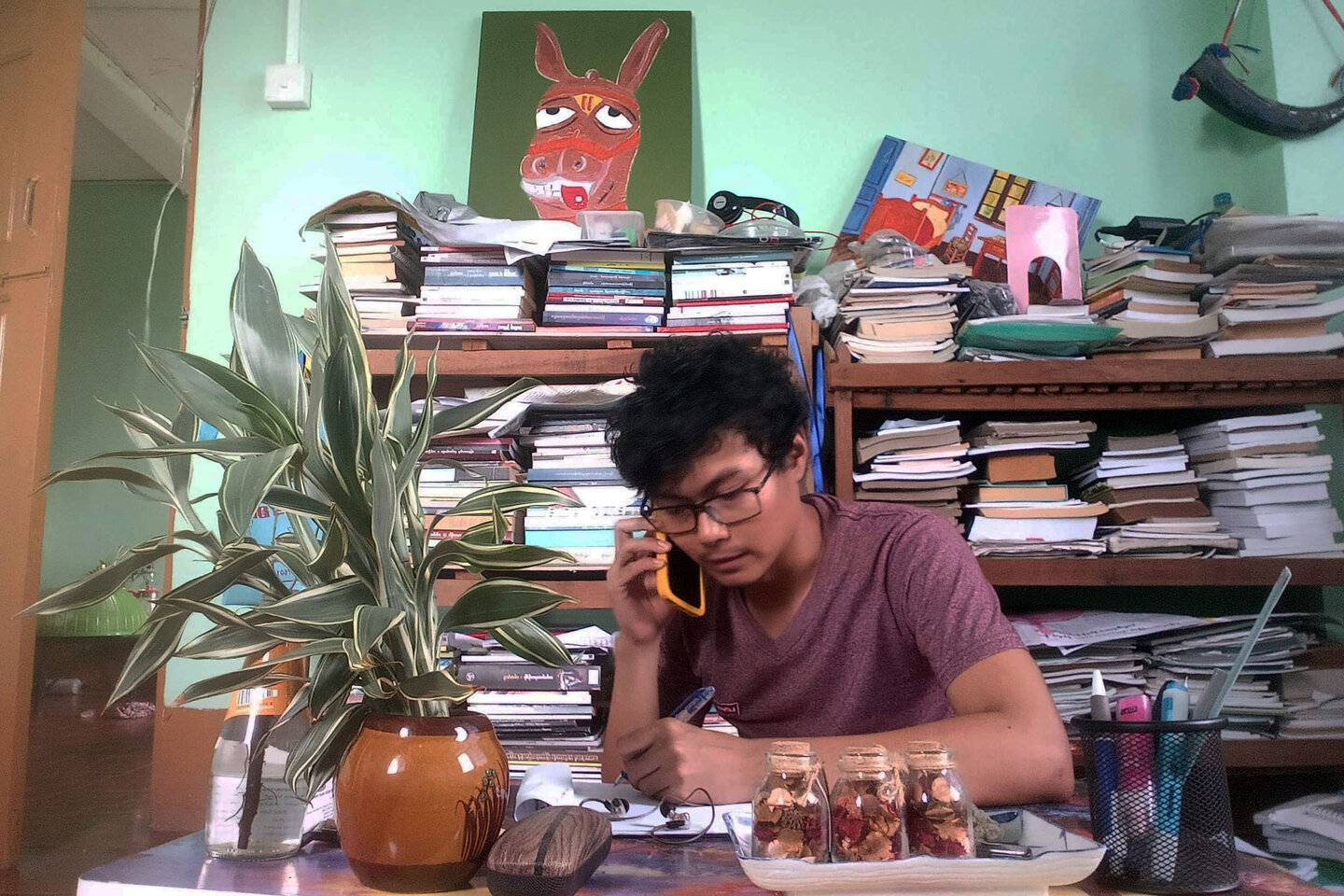
Every day I talk to my wife on the phone in Switzerland and experience the gradual return to normality. Also every day I look at the latest worldwide figures on COVID-19: For days now, the number of new confirmed infections has been well over 100,000, and the countries with the shortest time span for cases to double are Nepal, Haiti and Ethiopia, all of which are Helvetas partner countries. Even though we are all fed up with it: From a global perspective, the health crisis is by no means over and the economic crisis has only just begun!
After 61 evenings alone at home, I recently had dinner in a reopened restaurant. I was looking forward to going out like a teenager! The case numbers here in Myanmar are still low. We have put our offices into operation in shifts, so three times a week I cross the six-lane Pyay Road again.
Not only unemployed, but also homeless
When I recently arrived at the office, Ma Phyu, who keeps our office running, was already there and involved in an obviously intense phone conversation. At noon I learned what had happened: The owner of the private school where Ma Phyu and her husband live, where the latter works as a guard and has not received his salary for months because of coronavirus, decided to close his school. He has given the couple exactly half a day to pack their things and move out. Ma Phyu's husband is now not only unemployed, the two of them are now also homeless.
Hotline for COVID-19 sufferers
Our employee and her husband are not the only ones currently experiencing an emergency situation. Migrants, for example, also suffer greatly from coronavirus and its consequences. Helvetas is now supporting them - as a reaction to COVID-19 - with advice from the aid organization 'Call me today', which we support financially. It is a small valve for dealing with stressful situations.
Kyaw Zin, a young activist, founded "Call me today" two years ago after a homosexual acquaintance killed himself. In his suicide note he had stated that he had no one to talk to about his situation as a gay man. If "Call me today" had already existed at that time, he might still be alive. Now Kyaw Zin and his psychologically trained colleagues offer a telephone hotline for COVID-19 victims, including migrants.
The economic consequences are affecting livelihoods
Kyaw Zin tells me of two exemplary cases: "A security guard at a factory in one of the poorest quarters of Yangon is dismissed. "He dares not complain to his employer." Kyaw Zin puts him in touch with a union we know. The second case: "Shortly before COVID-19 broke out, a couple took out a loan from relatives to buy a car in order to provide taxi services. The bans imposed by coronavirus prevented them from operating. The family has no income, sits on debts, has to pay interest and has lost neighborly support: the neighbors think the family is rich because they own a car." The economic consequences of COVID-19 are brutal and dire. Fortunately, Ma Phyu and her husband quickly found a place to live again. If only for three months...
Burkina Faso: Armed attacks overshadow return to normality
By Franca Roiatti, Helvetas communications coordinator for West Africa
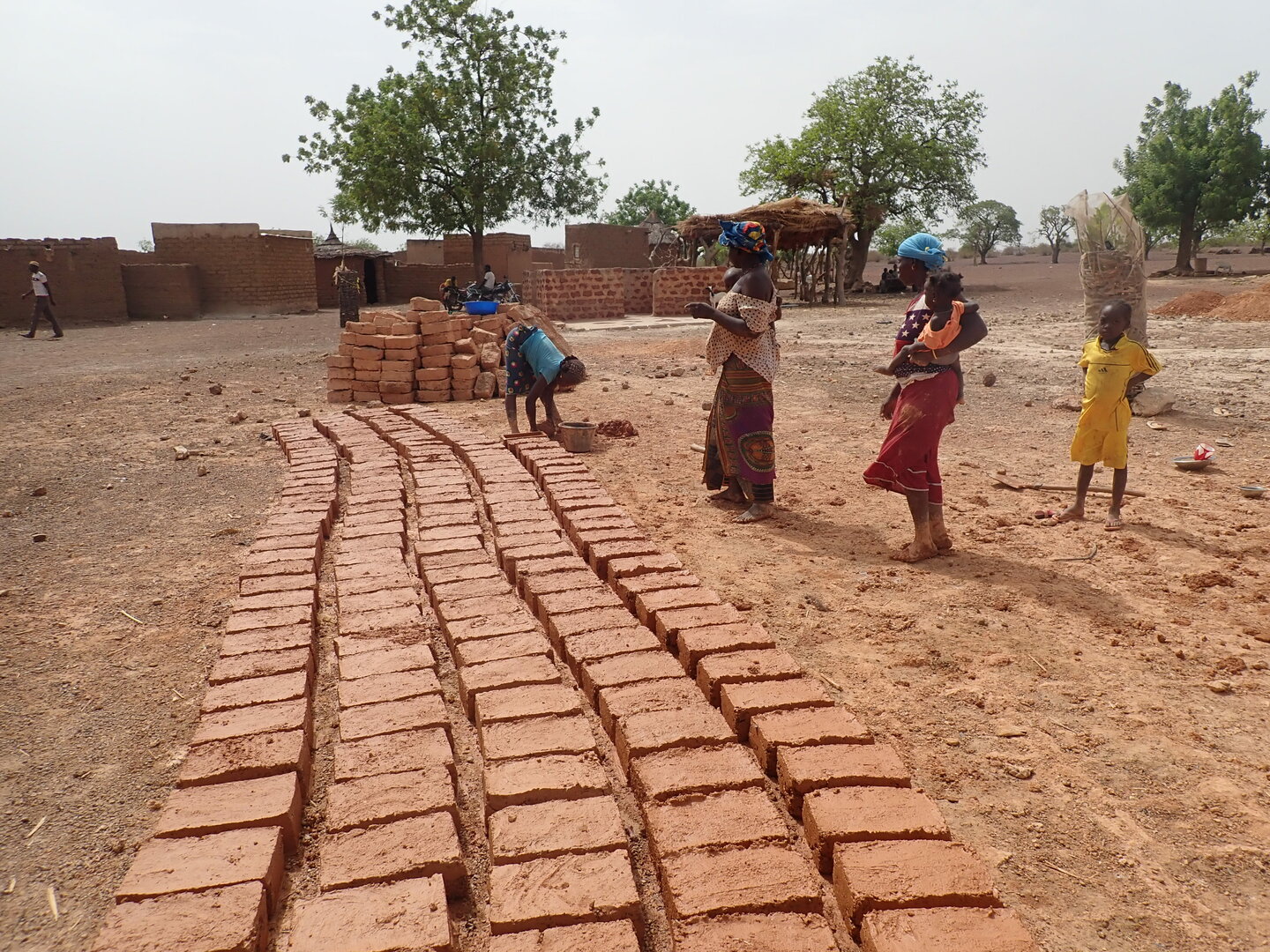
They wait at the side of the road that connects Ouagadougou with Bobo Dioulasso, extending a hand to the passing cars. They hold wild grapes in their little fists and hope to sell them before nightfall. They are among the thousands of children whom the COVID-19 pandemic has driven out of Burkina Faso's classrooms since March.
On June 1, after many discussions and postponements, the government reopened the schools, but only for children who are in an exam year. At a public school in Bobo Dioulasso, for example, only 72 out of more than 450 students are back. Before the coronavirus, they were sitting closely together, now they are divided into two classrooms, sitting separately and wearing masks officially provided by the state.
Some schools remain closed - because of violence
For most children, school will not resume until October, but in some areas, it will not resume at all. Even before the COVID-19 crisis, more than 2500 schools in Burkina Faso were closed due to the increasing violence. Armed groups have threatened and killed teachers, intimidated pupils and burned down schools.
The ongoing conflict, which is making it difficult for the government to maintain control over parts of the country, is once again attracting media attention together with the presidential and parliamentary elections scheduled for November.
Filled minibuses, need for normality
We are still visually reminded about the health crisis caused by the coronavirus by huge posters along the streets of the main cities, urging people to take precautions, as well as colorful plastic hand washing machines in front of bars and offices. The curfew has been lifted, masks are a rather neglected accessory, people are again filling up minibuses and riding tricycles without much regard for social distancing. There is a great need for normality.
Income thanks to the production of bricks
Normality is what Safieta and Awa miss most. They were forced to flee their villages after violent attacks, and they now live with Asseta's family in Rambo. Together, the three women produce bricks for the latrines that our WASHPRO project is building for the internally displaced people and their host communities. By selling the bricks, the women can earn a little extra money: "I would like to buy a mobile phone so that I can keep in touch with my husband and children, who work as artisanal miners," says Safieta, 42 years old and mother of five, "and also learn about my friends and neighbors who still live in my village. Awa, 32, has three children for whom she wants to buy clothes. She has not been able to do so until now because she has lost all her sources of income.



